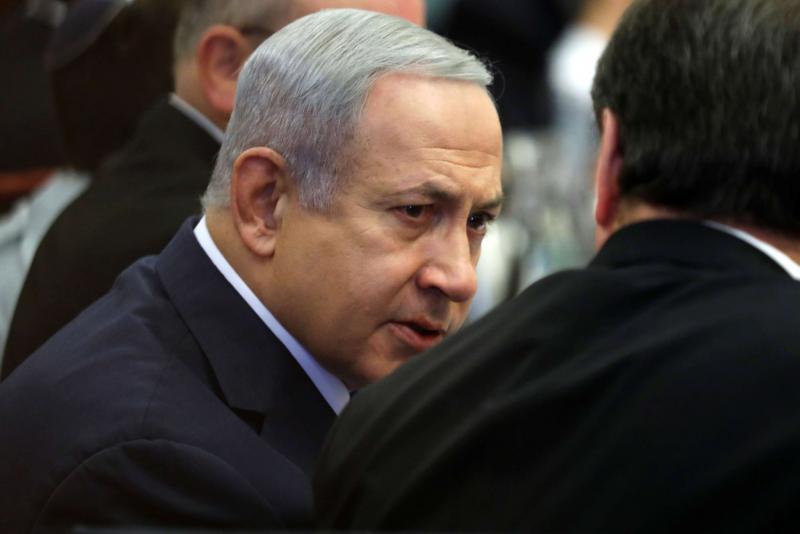Why Israel is pushing for a reset in relations with the Muslim world
Binyamin Netanyahu’s Israel is determined to become a friend of all the world. All the Muslim world beyond the Palestinian territories, that is.
In 2016, it was Muslim-majority Guinea. In 2019, it’s Muslim-majority Chad and soon, perhaps, overwhelmingly Muslim Mali. In restoring relations, Guinea, Chad and Mali end 52, 48 and 47 years, respectively, of diplomatic hostility towards Israel.
Netanyahu’s motives in pushing for a reset in relations with these poor African countries are clear: Israel wants the world to know that the Palestinians now matter little, even to their Muslim brothers. This makes the case for wider unconcern towards the Palestinian issue.
In December 2017, the day after US President Donald Trump announced his country’s embassy would move from Tel Aviv to Jerusalem, Netanyahu delivered a challenging message to foreign diplomats. “I ask that your policies to Israel, especially if you are from Europe, that your actual policies be no more and no less than the policies of the Arab world,” he said.
He meant a new mood of acceptance of Israel on the part of Saudi Arabia and others. Netanyahu can now add strategically important parts of Muslim Africa to his list of new friends.
Netanyahu’s Israel is declaring war on the very concept of a peace process with the Palestinians. US-born veteran Israeli diplomat Dore Gold recently said as much. The peace process is not a prerequisite to improved ties between Israel and the Muslim world, Gold told the online Jewish magazine Mosaic in response to news of warming ties with Chad.
“Israel doesn’t have to wait for a slip of paper from Ramallah before it can conclude understandings with other Muslim countries,” Gold added in derisory tones. “That was a mistake of the past [that] we’re not repeating any longer.”
Even so, there is blowback from actions of, by and for Israel, and it is tragically being felt in parts of Africa. On January 20, Chadian nationals serving as UN peacekeepers in Mali were killed by members of al-Qaeda in the Islamic Maghreb (AQIM). The group said the attack was in response to Chad’s resumption of diplomatic relations with Israel. Al-Shabab, al-Qaeda’s chapter in east Africa, claimed that the January 16 attack on a Nairobi hotel was in retaliation for Trump’s decision to move the US embassy to Jerusalem.
The stated motivation for both attacks is significant. While it initially seemed that Trump’s embassy move had triggered little fire and fury and mostly been absorbed by the Arab and Muslim world, it lit a slow-burning fuse on the extremist fringes.
Jihadist groups now have a new focus. It is Israel’s muscular outreach to the Muslim world; its determination to diminish the Palestinians’ standing as a people in search of justice and its perceived new strength on the diplomatic chessboard as a result of Trump’s unashamed favouritism. The results of the jihadists’ new focus are apparent and it’s likely there will be more Muslim-on-Muslim attacks against those inclined to deal with Israel.
The assault on the UN camp in Aguelhok, northern Mali, occurred on the very day Netanyahu was visiting N’Djamena, capital of Chad. The planned restoration of Israeli-Chadian diplomatic relations had been well advertised in the three months since Chadian President Idriss Deby visited Jerusalem.
This suggests AQIM had plenty of time to prepare for the bloody message it intended to send to Chad for its faithlessness in apparently abandoning the Palestinians and taking up with their oppressors, the Israelis.
The Nairobi attack came 13 months after the alleged triggering event — the transfer of the US embassy to Jerusalem. It’s possible that al-Shabab made an opportunistic connection between its murderous handiwork and events in the faraway Palestinian territories and Israel. Jihadist groups routinely present their perverted view of Islam and the obligations it entails as the only real protection available to the Muslim community. They are canny in seizing on the implications for Palestinians of the unified front newly being forged between Israel and Muslim countries.
Although Arab and Muslim regimes appear to be increasingly cynical about the ineffective and divided Palestinian leadership, their people are not quite so jaded. The Muslim public still cares about the Palestinians’ plight and their leaders cannot afford to ignore public opinion altogether.
However, fine words in support of the Palestinian cause will go only so far towards soothing disquiet. The danger is the jihadists trying to plug the gap between rhetoric and real action.
Rashmee Roshan Lall is a regular columnist for The Arab Weekly. She blogs at www.rashmee.com and is on Twitter @rashmeerl
Copyright ©2019 The Arab Weekly — distributed by Agence Global







